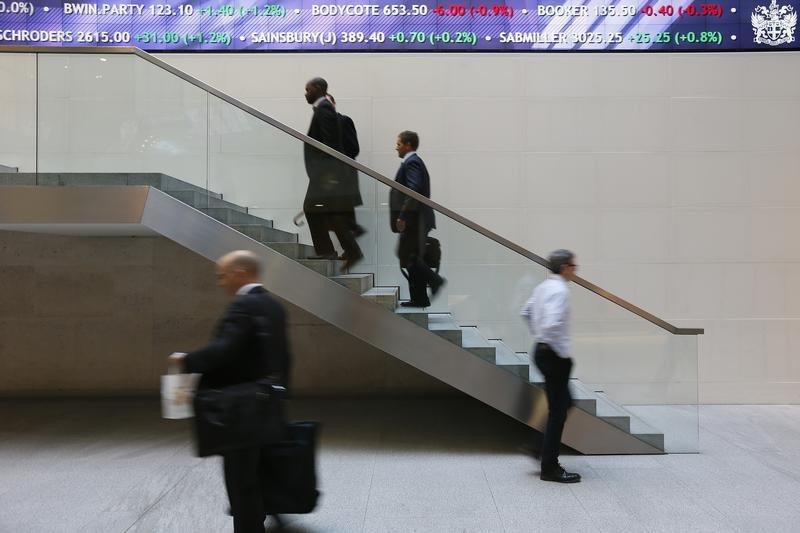By Marc Jones
LONDON (Reuters) - European shares were at a seven-year high and the euro sat near an 11-year low on Thursday as the European Central Bank prepared to take the plunge into full-scale quantitative easing.
Market expectations are sky-high for the ECB to unveil a large-scale QE programme -- printing money to buy euro zone government bonds -- despite opposition from Germany's Bundesbank. Berlin is also worried that such purchases could allow spendthrift countries to slacken the pace of reforms.
A euro zone source said on Wednesday that the bank's Executive Board, which met on Tuesday, has proposed the ECB should buy 50 billion euros ($58 billion) of bonds each month from March, though it was unclear how long for.
Markets pumped up by almost a year of jockeying over the issue were awaiting the crucial details, expected to come at a 1330 GMT news conference with the bank's chief Mario Draghi.
German and other euro zone bond yields nudged up as investors locked in some profits from a recent sharp rally, while the region's shares (FTEU3) and the euro <EUR/USD> inched up to 1,434.40 points and just over $1.1630 respectively.
"The key market focus is likely to be on two things," said analysts at Goldman Sachs. "(i) the scale and maturity profile of the programme and (ii) whether the ECB chooses to 'mutualise' the risk on its own balance sheet or place assets on national central banks' balance sheets."
Broader market sentiment remained positive for riskier assets, supported by the aggressive actions of central banks seeking to fight deflation and avoid losing out in what is fast becoming a global currency war.
Canada's dollar
The ECB has already cut interest rates to record lows, begun buying private sector assets and funnelled hundreds of billions of euros of cheap loans to banks, in the hope that they would lend the money on into the economy and stimulate growth.
Now its last remaining major option is QE, a policy that the U.S. Federal Reserve, Bank of England and Bank of Japan have all used with some success.
EVERYONE'S AT IT
European shares were hoping to make it a sixth successive day of rises. With U.S. futures pointing to positive start for Wall Street ahead of another busy day of company earnings, MSCI's 45-country world index (MIWD00000PUS) was eyeing a fifth day of advances.
The euro traded narrowly, between $1.1629 and $1.1589, moving away from an 11-year nadir of $1.14595 plumbed last week as the market trimmed short positions ahead of the ECB QE plan.
Traders though were braced for a volatile session later given how long markets have been preparing for the ECB to take the plunge into bond buying.
Banks like Goldman are expecting the euro to eventually reach parity with the dollar, but low global inflation is now pushing back bets on the first U.S. rate hike. That's on top of the nerves about ECB QE and Greece's elections at the weekend where the anti-EU/IMF bailout Syriza party lead the polls.
"It could be so volatile, we could trade four big figures on euro/dollar," said National Australia Bank strategist Gavin Friend. "There is so much potential for confusion and for it (QE) to be watered down."
Europe's central banks have also been heavily strained by the prospect of ECB QE. The SNB was forced to remove its currency cap last week, Denmark has pushed its interest rates deeper into negative territory, while two British rate setters at the Bank of England have dropped calls for a rate hike.
The Australian and New Zealand dollars suffered deep losses overnight as Canada's latest shock as it cut rates fuelled speculation the Reserve Bank of Australia could soon follow.
The Aussie fetched $0.8106
Crude oil prices and gold <XAU/USD> were also being dragged around by expectations that the ECB's decision to launch bond-buying stimulus could boost growth, but also the dollar, which would put downward pressure on commodity markets.
Brent crude futures nudged up to $49.5 per barrel and U.S. crude

The dollar (DXY) meanwhile dipped against a basket of currencies and to 117.75 on the yen <USD/JPY>. Japan's central bank had also been in action earlier and signalled its resolve to hit its ambitious 2 percent inflation target.